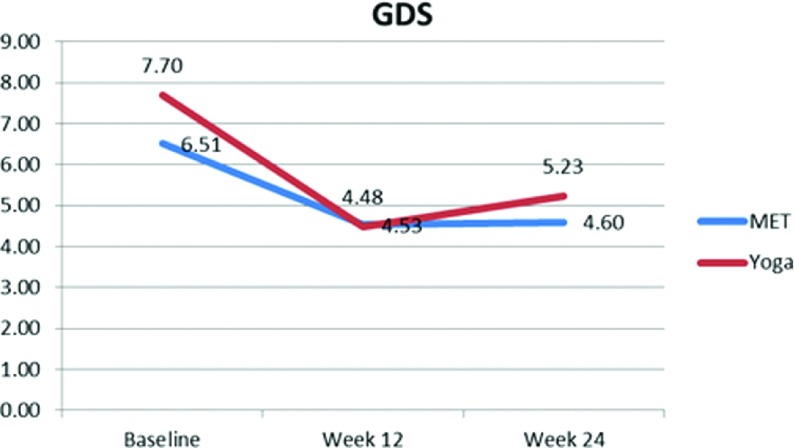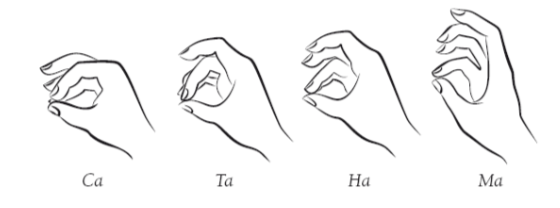Kirtan Kriya – Sa Ta Na Ma: A Scientifically Proven Practice for Brain and Emotional Health

A growing body of medical research confirms that Kirtan Kriya (KK) meditation is far more than just a stress-reduction technique. It has shown potential in improving memory, aiding in the treatment of cognitive decline, and even playing a role in Alzheimer’s disease prevention1. Clinical trials have also demonstrated that KK can enhance sleep quality, reduce depression and anxiety, activate immune-related gene2and even increase telomerase activity3, which is associated with cellular longevity.
With such strong evidence — including data from randomized controlled trials (RCTs) — it’s no coincidence that we’ve chosen to highlight the benefits of Kirtan Kriya. In this section, we’ll guide you through the key research findings. We hope it inspires some of you to make this powerful practice a meaningful part of your personal healthcare routine.
This article was last reviewed by Svetlana Baloban, Healsens, on January 24, 2020. This article was last modified on 7 March 2021.
Cognitive Function and Memory Improvement
There are many studies proving that yoga practices are increasingly shown to be effective for the treatment of age-related cognitive issues.
Let us start with a 2017 12-week study that tested the effects of kundalini yoga training on mild cognitive impairment (MCI)4. What makes this study interesting is that the results of yoga practice were compared with the results of training to improve memory MET.
MET was developed by researchers within the UCLA Longevity Center. It is well studied and has become a gold standard intervention for cognitive training. At the same time, improvement in memory with MET training is observed in both healthy people and people with cognitive problems5. Thus, MET provides a rigorous control for KY meditation.
It also needs to be noted, that cognitive decline is a strong predictor of Alzheimer’s disease leading to dementia6. Overall, the study provides evidence of the benefits of Kundalini yoga, including Kirtan Kriya, for improving cognitive function in individuals with MCI
The Design Research
The trial participants were gathered among the people ≥55 y.o. with a mild cognitive impairment. To assess the impact of training, 2 different groups were created. So, part of the people randomly got into a 12-week program on kundalini yoga (KK). All others were involved in the MET memory improvement training, which we wrote about above.
RELATED ARTICLES
In addition, all program participants were administered extensive tests assessing their cognitive abilities. Researchers assessed their verbal and visual memories, visual-spatial skills, individual executive, and executive functions. People were also tested for depression, present symptoms of apathy, and psychological resilience to stress.
The participants of the experiment passed such testing several times. The tests were passed at baseline (pre-intervention) and repeated at 12 and 24 week post-intervention.
Let’s say a few more words about what exercises were performed in the yoga group. First, once a week the participants would hook up for a 60-minute kundalini lesson. In addition, all participants were required to do a 12-minute Kirtan Kriya meditation daily.
Results
As a result of the experiment, both groups had significant improvement in memory. However, the yoga team additionally showed a broader effect on executive functioning, with greater improving in their mood7. In addition, such positive dynamics persisted after the end of the training. Impressive, isn’t it?
A similar RCT was conducted in 20168. Here the results of the meditation group were compared with the machine learning program. The researchers came up with the same result. Kirtan Kriya meditation can help people with early memory loss. It is worth mentioning that the participants practiced the 12 minutes kirtan kriya meditation only. And this is only 12 minutes a day at home and at a convenient time.
» Learn more about how blood tests can reveal the extent of cumulative stress on your body.
Cerebral Blood Flow Changes
Interestingly, Kirtan Kriya benefits also showed cerebral blood flow changes during the practice of KK910. Thus, there was observed a significant increase in cerebral blood flow (CBF) within the frontal lobe and right superior parietal lobe. Moreover, the posterior cingulate gyrus (PCG) is also activated. All this suggests that such activation of the brain with increased blood flow may have a beneficial effect or provide protection against neurodegeneration11. However, a larger study is needed to confirm this conclusion.
And finally, Luders’s study concluded that someone who practices meditation regularly, has a 7.5 years younger brain12.The age was calculated as BrainAGE index. It was also found that with every passing year, meditators’ age reduced. Thus, the researchers concluded that Kirtan Kriya benefits help maintain the brain and its activity in good shape.
Kirtan Kriya Helps to Improve Mood
Various studies have shown that Kirtan Kriya markedly improves mood, reduces anxiety, tension, and fatigue. There was also a significant improvement in depressive symptoms and mental health. And this effect was observed both in healthy people13, so in people with memory loss14. It is worth mentioning that the latter participated in the 8-week Kirtan Kriya meditation program, which highlights Kirtan Kriya benefits.
Studies have also shown that 8 weeks of KK helped in alleviating worry15 and soaring positive mood and energy. In addition, a majority of patients found the sessions relaxing, calming, peaceful, and uplifting, demonstrating the multiple Kirtan Kriya benefits.
Better Sleep
In the same way, sleep disruption has negative effects on health, performance, and quality of life. It is also known to impair cognitive function in healthy people16, to accelerate cognitive decline17, and to predict incident MCI and dementia18. In addition, sleep disturbances can generate glucose intolerance, obesity, and hypertension19. And finally, sleep impairment has likewise been linked to increased risk for type 2 diabetes and some other diseases.
That being said, research shows that an 18-week 12-minute daily meditation program may be effective in reducing stress and improving sleep and mood2021.
Influence at Telomere Length and Activity
Research supported by the Alzheimer’s Research and Prevention Foundation (ARPF), and by the National Institutes of Health22 published the results of a study on the effect of two 12-week Kirtan Kriya meditations on telomere length (TL), telomerase activity (TA), and plasma amyloid-β(Aβ) levels (biomarkers of cellular aging). In addition to biomarkers, the researchers also assessed cognitive function and psychosocial status. For this, an assessment was carried out at baseline, after 3 months and 6 months.
So, during the experiment, all participants were randomly divided into 2 groups. Thus, one part of the people joined a group of the 12-minute Kirtan Kriya (KK). The second group of people joined the music listening (ML) program. They were instructed to listen to 12-minutes of relaxing instrumental music each day. The ML CD contained selections from Bach, Beethoven, Debussy, Mozart, Pachelbel, and Vivaldi. They were asked to try each composer at least once in 12 weeks.
As a result, the KK group showed a significantly greater increase in Aβ40 than the ML group. At the same time, the activity of telomerase TA increased in both groups. Increases in plasma Aβ levels were significantly correlated with gains in memory and cognitive function. There was also an improvement in mood, stress, sleep, and QOL.
A similar conclusion was also reached in a study of the effect of meditation on family dementia caregivers23. First, the practice of Kirtan Kriya resulted in improved mental health and decreased depressive symptoms. Second, this improvement was also associated with increased telomerase activity. This indicates an improvement in stress-induced cellular aging. However, these findings will need to be replicated in a larger sample.
» Discover everything about what your cholesterol results mean.
An alternative Treatment for Depression
Depression is one of the most common mental illnesses in the world. In its turn, researchers are studying yoga as an alternative and complementary treatment for depression. As a rule, yoga is usually combined with other treatments for depression, anxiety, and stress-related disorders. Studies, in turn, support this approach, for example, with antidepressant treatment (Janakiramaiah et al., 2000).
However, research Shahidi et al. (2011)24showed that yoga itself is a fairly effective tool, at least as effective as a group exercise program in improving depression. How significant is this improvement?
The study of 2017, which we’ve already written above25 also revealed Kirtan Kriya benefits with a significant improvement in a depressive mood.
To assess mood, the researchers used the Geriatric Depression Scale (GDS). This scale is widely used among the elderly. As a result, the KY group showed significant improvements in depression ratings (GDS: ES (KY) = -0,62).

How to do Kirtan Kriya Practice
So, in all studies, Kirtan Kriya was used as a home exercise. What does it look like? In fact, KK meditation involves repetitive finger movements while chanting the mantra “Saa, Taa, Naa, Maa”, which means “Birth, Life, Death and Rebirth.” Although kirtan kriya can be of various durations, 12 minutes-one was used in the studies. So, below we will describe the technique in detail.
To start the practice, sit on a chair or on the floor and relax. You need to find a comfortable sitting position with a straight back. Straighten your shoulders, straighten your neck and back.
Eyes
Eyes are closed.
The finger movement
To start the lesson, you need to take a comfortable sitting position with a straight back. You can sit cross-legged or just sit on a chair. Straighten your shoulders, straighten your neck and back.
With your hands placed on the knees, touch each of the other four fingers in sequence(picture 1) with your thumb. Both hands perform the same movements simultaneously. On the sound “Saa”, touch the index fingers on both hands with the thumbs. Then, at “Taa”, touch the middle fingers with the thumbs; at “Naa”, touch the ring fingers with the thumbs; at “Maa”, touch the little fingers with the thumbs.
Why use Healsens?

This isn’t just another health app
It’s your science-backed roadmap to better health, combining lab tests, screenings, and risk analysis—all in one place.
The sequence is always forward: thumb to index finger, middle finger, ring finger, and pinky.

This video was created in collaboration with @ombraspace, a Kundalini yoga studio based in Amsterdam.
The sounds
As we wrote above, KK uses the sounds Saa, Taa, Naa, Maa. Sing “Saa, Taa, Naa, Maa” while also performing the movements with the fingers of both hands (as shown in the picture above). Wherein, follow the next sequence:
- Sing out loud for two minutes.
- Then, for the next two minutes, sing in a whisper.
- For the next four minutes, say the sound silently to yourself.
- Return to a whisper for two minutes
- And complete the sequence by singing out loud for the last two minutes.
It is convenient to use a ready-made audio recording, where the out loud / whisper / silent transitions are already timed. If outside thoughts intrude, simply return your focus to the sounds and visualization.
The sound is visualized coming down from the top of the head, and out the middle of the forehead (the third eye).
FURTHER READING
Follow us on Facebook|| Instagram || Telegram || Twitter || Youtube
Source: ©️2019 Healsens B.V. All right reserve
- Determining the mechanism behind yoga’s effects on preventing the symptoms of Alzheimer’s disease
- Stress, Meditation, and Alzheimer’s Disease Prevention: Where The Evidence Stands
- Effects of Meditation and Music-Listening on Blood Biomarkers of Cellular Aging and Alzheimer’s Disease in Adults with Subjective Cognitive Decline: An Exploratory Randomized Clinical Trial
- A randomized controlled trial of Kundalini yoga in mild cognitive impairment
- The Memory Aid study: protocol for a randomized controlled clinical trial evaluating the effect of computer-based working memory training in elderly patients with mild cognitive impairment (MCI)
- Mild cognitive impairment as a diagnostic entity
- A randomized controlled trial of Kundalini yoga in mild cognitive impairment
- A randomized controlled trial of two simple mind-body programs, Kirtan Kriya meditation and music listening, for adults with subjective cognitive decline: Feasibility and acceptability
- Effects of an 8-week meditation program on mood and anxiety in patients with memory loss
- Meditation effects on cognitive function and cerebral blood flow in subjects with memory loss: a preliminary study.
- Stress, Meditation, and Alzheimer’s Disease Prevention: Where The Evidence Stands
- Estimating brain age using high-resolution pattern recognition: Younger brains in long-term meditation practitioners
- The Efficacy of Yoga as a Form of Treatment for Depression
- Effects of an 8-week meditation program on mood and anxiety in patients with memory loss
- Benefits of mindfulness training for patients with progressive cognitive decline and their caregivers
- Prevalence of sleep disturbances in mild cognitive impairment and dementing disorders: a multicenter Italian clinical cross-sectional study on 431 patients
- Sleep in dementia and caregiving–assessment and treatment implications: a review.
- Sleep disturbances in older adults with mild cognitive impairment.
- Inflammation, sleep, obesity and cardiovascular disease.
- The effects of meditation on perceived stress and related indices of psychological status and sympathetic activation in persons with Alzheimer’s disease and their caregivers: a pilot study
- Mindfulness-based stress reduction in relation to quality of life, mood, symptoms of stress, and immune parameters in breast and prostate cancer outpatients
- Effects of Meditation and Music-Listening on Blood Biomarkers of Cellular Aging and Alzheimer’s Disease in Adults with Subjective Cognitive Decline: An Exploratory Randomized Clinical Trial
- A pilot study of yogic meditation for family dementia caregivers with depressive symptoms: Effects on mental health, cognition, and telomerase activity
- Laughter yoga versus group exercise program in elderly depressed women: a randomized controlled trial.
- A randomized controlled trial of Kundalini yoga in mild cognitive impairment



